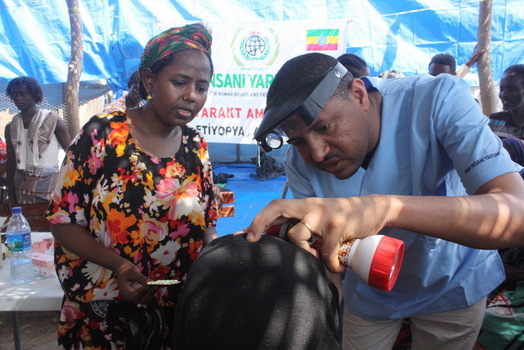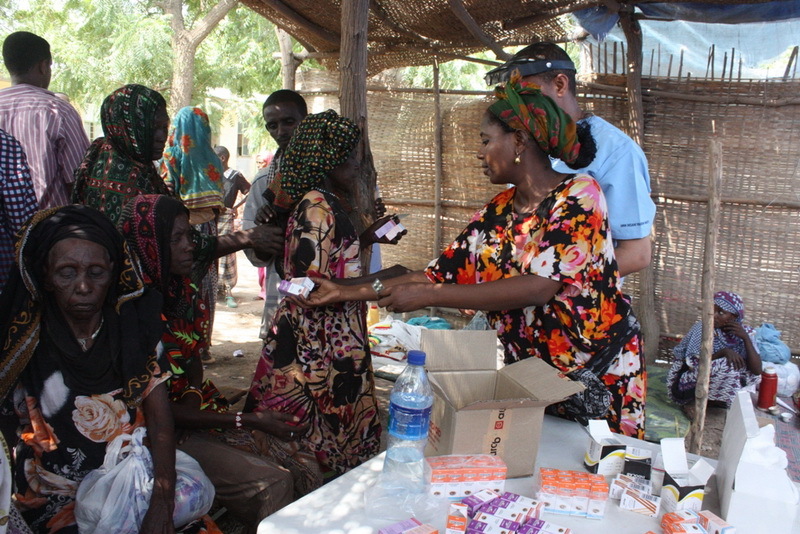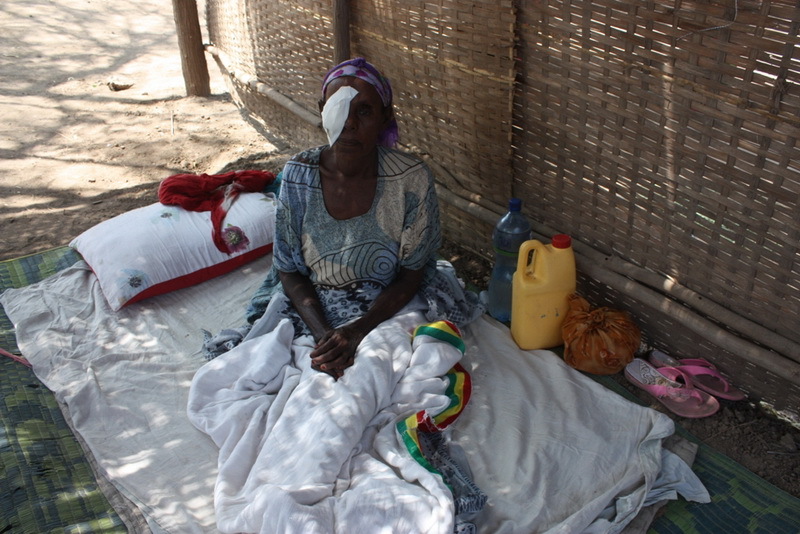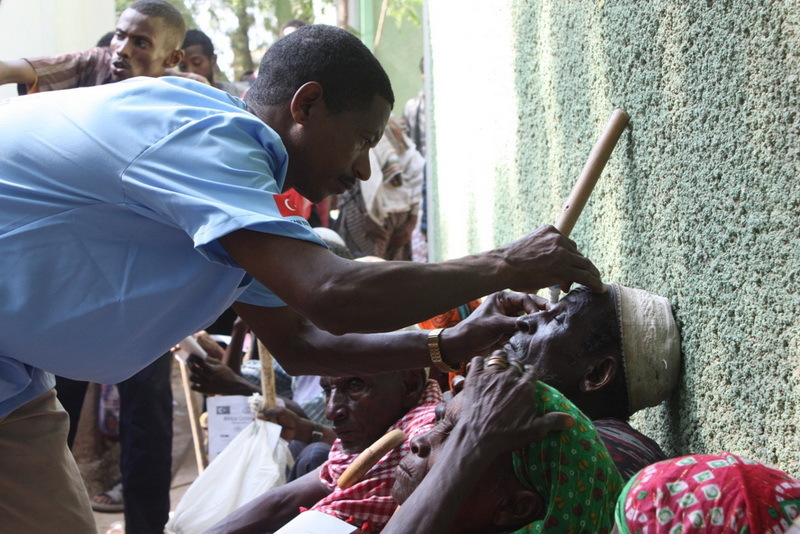
Via Africa Cataract Project, IHH has carried out surgeries in nine African countries so far, 15,000 of these have been operated in Ethiopia. IHH has already offered cataract surgeries to patients in Ethiopia’s Tigray and Mekelle regions. Now, the cataract patients in the country’s Afar region have also begun to be offered eye examinations and cataract surgeries by IHH medical team. IHH is planning to offer surgeries to 5,000 cataract patients here within six months.
As part of the IHH’s Cataract Project launched in Africa in 2007 with the slogan: “If you see them, they will see the world” a total of 169,000 people have been offered eye examinations in Sudan, Somalia, Chad, Benin, Ghana, Togo, Sierra Leone and Ethiopia. A total of 53,400 people who were diagnosed with cataracts during these examinations, were offered surgeries enabling them to regain their vision. Eighty nurses and 106 doctors from Turkey voluntarily took part in these surgeries.
IHH aims for 100 cataract surgeries
Osman Atalay, a member of the IHH executive board, said a total of 15,000 cataract surgeries have been carried out in Ethiopia’s Tigray and Mekelle regions over the past two years, adding that 5,000 more cataract patients will be offered free surgeries in Afar region in the upcoming six months.
“We are working with local doctors in Ethiopia. This is what the Ethiopian state wants us to do as the state wants the local doctors to gain experience in surgeries. Nurses working with these doctors also gain experience. Our goal is to offer surgeries to 100,000 cataract patients across Africa and make them regain their vision. I offer my heartfelt thanks to all charity givers who help thousands of Africans to regain their eyesight by their donations,” Atalay said.
There are 10 million people with eyesight problems in Africa
Statistics show that there are 10 million people with eyesight problems in Africa and five million of these people have lost their eyesight due to cataract. It is noted that 600,000 new people are added to the millions of cataract patients in Africa every year. The number of cataract patients grows in Africa mainly because of malnourishment, vitamin deficiency, UV exposure, and lack of treatment opportunities.
There are currently 500,000 cataract patients in Ethiopia and 50,000 new cataract patients join this figure every year. It is known that there are only 200 eye doctors in Ethiopia, which has a population of 83 million. Cataract patients particularly those living in rural parts of the country have limited access to eye doctors due to shortage of doctors in the country. Half of the people with eye problems in the country are suffering from cataract.
As part of an agreement with Ethiopian Health Ministry, IHH offers free cataract surgeries to the people in need.
Afar: rural part of Ethiopia
IHH medical team carries out an average of 65 cataract surgeries daily at the regional hospital in Dubti in Afar, which is 12 hours away from capital Addis Ababa via land travel. The goal is to perform surgeries for 5,000 cataract patients at the hospital in the upcoming six months.
One of the patients waiting for a cataract surgery at the hospital, Abraha Gibrisillasi, 70, said he has been suffering from an eyesight problem for 20 years. “Yesterday, I was offered an eye examination. I will have a surgery today. I had no chances of having such a surgery before. I pray for Turkey and IHH. Thank you. I thank you all, particularly for not making any differentiation between the poor, Muslims and Christians.”
Ibrahim Yusuf, a 60-year-old patient who had a surgery at the hospital before, said he had his right eye’s cataract removed and now he has had his left eye’s cataract removed. “Thanks Allah, I have regained my eyesight. May Allah pleased with all the donators,” he said.
Reports say that there are 20,000 blind people in Afar 10,000 of those are cataract patients.
Muhammad Ahmed, a health ministry official in Afar, said Afar is a very dry and arid region as he added: “This is a region where state aid remains insufficient. There are problems in every field here including healthcare, education, transportation and agriculture. There are five hospitals in the region but access to these hospitals is very difficult. We have problems in transferring the patients to these hospitals. Accommodation is also a very big problem here. We expect help from IHH in this respect,” he said.
One of the local doctors who take part in surgeries at the hospital and paid by IHH, Fussun Bakare, said cataract problem are very widespread in the region due to drought and malnourishment.
“There is not sufficient number of medical education centers in the country. There is no sufficient number of doctors and nurses. There is also a poor healthcare infrastructure and shortage of medicine. A total of 350 patients seeking treatment came to the hospital only today. I cover 80 kilometers every day to come to the hospital. As a three-member team, we carry out surgeries here every day,” Bakare said.
Dubti Regional Hospital
Patients who had surgeries at the Dubti Regional Hospital, a four-storey building in the middle of a desert, where the average temperature is 40 centigrade degree throughout the year, are kept under control at the hospital’s courtyard for one day. These patients are given free medication by the doctors. IHH also transports the patients from villages to hospitals and provide them food for three days following the operation.






